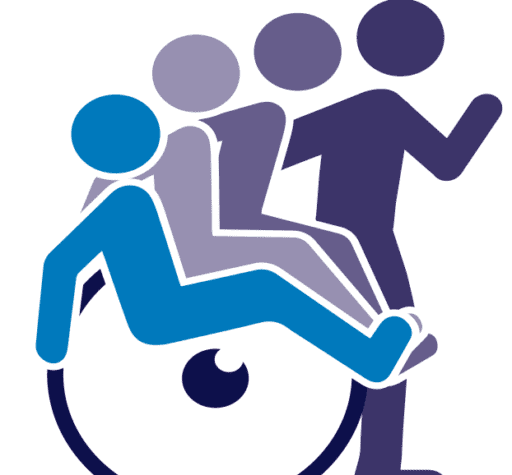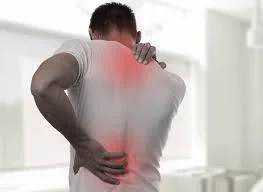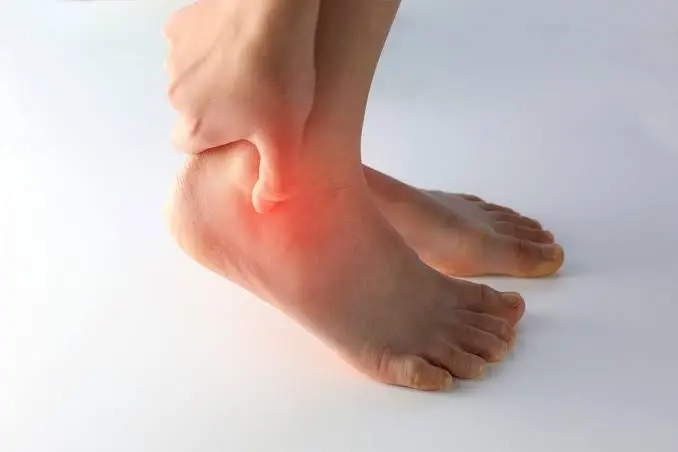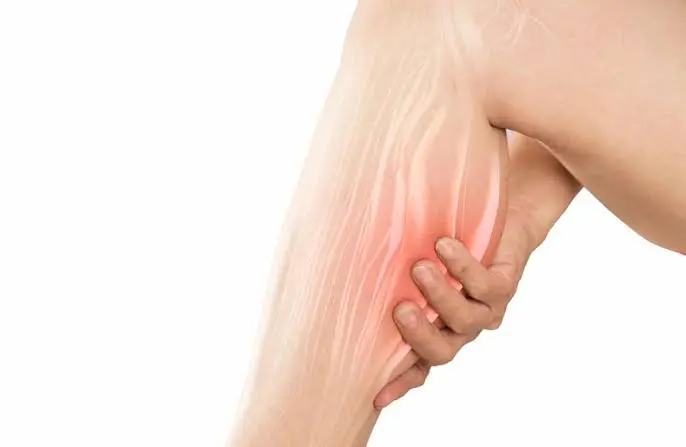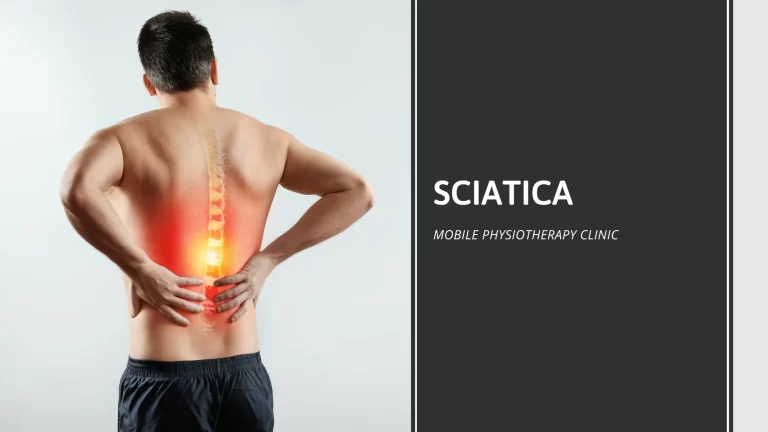Home Treatment for Muscle Pain
Table of Contents
Introduction
Muscle pain, whether stemming from an intense workout, overexertion, or an underlying health condition, can be a formidable obstacle to daily life. While consulting with a healthcare professional is crucial for severe or persistent pain, many individuals can find relief through simple and effective home treatments.
This article aims to provide a comprehensive guide to managing and alleviating muscle pain in the comfort of your own home. From tried-and-true remedies to lifestyle adjustments, we’ll explore various strategies to help you regain comfort and mobility without the need for medical intervention.
Discover the power of self-care and practical tips that can make a significant difference in your journey towards a pain-free life.
What is a Muscle Pain?
Muscle pain is a common condition characterized by muscle aching, soreness, stiffness, or discomfort.
Myalgia, or muscle pain, is a symptom of an injury, infection, disease, or other health problem. You may feel a deep, constant ache or a series of sharp pains. Some people have muscle pain all over their bodies, while others only in certain areas. Everyone is affected differently by muscle pain.
Muscle pain can strike people of any age or gender. If you try a new physical activity or change up your exercise routine, you may experience delayed-onset muscle soreness (DOMS). Muscle aches can occur anywhere from six to twelve hours after a workout and can last up to 48 hours. You will feel pain as your muscles heal.
Causes
Muscle pain arises from several factors, including:
- Diseases are caused by the immune system.
- Infections.
- Injuries.
- Medications.
- Disorders of the neuromuscular system.
- Stress
- A nutritional deficiency
- Dehydration
- Lack of sleep
- Excessive physical activity
Autoimmune diseases
Autoimmune diseases occur when the immune system of the body mistakenly attacks itself. A strong immune system protects against germs and infections.
Among the autoimmune diseases that cause muscle pain are:
Inflammatory myopathies such as polymyositis.
Lupus.
Multiple sclerosis.
Injuries
Overuse stiffness can occur when you repeatedly use the same muscles at work or during exercise.
Other injuries that result in sore muscles include:
- Strains in the abdomen.
- Sprains and strains in the back.
- Broken bones and traumatic injuries are common.
- Tendinitis.
- Tendinosis.
Nutritional deficiency
Muscular aches and pains can occur when a person’s diet lacks adequate nutrition.
Vitamin D is especially important in ensuring that the muscles function properly. Vitamin D aids calcium absorption, and a deficiency can result in hypocalcemia.
Hypocalcemia is a condition in which the blood calcium level is low, affecting the bones, organs, and muscles.
Dehydration
Muscle aches can occur in a dehydrated person.
Drinking plenty of water is essential for keeping the body running smoothly, as it can quickly shut down without enough fluids. Dehydration makes essential bodily functions like breathing and digestion more difficult.
People should be mindful of how much water they consume. Each day, 6-8 glasses of water are recommended. If a person sweats more than usual due to hot weather or exercise, they will need to drink more than this.
Lack of sleep
A lack of sleep can have serious consequences for the body. Reliable Source.
Sleep allows the body to rest and recover, and not getting enough sleep can cause muscle aches.
People who do not get enough quality sleep may feel sluggish and slow. It can impair people’s ability to think clearly and make it difficult for them to carry out daily tasks.
Treatment for muscle pain
According to the cause, this list of steps may help you feel better:
- Rest and elevate the sore spot.
- Alternate between ice packs and heat to reduce inflammation and improve blood flow.
- Take a warm bath with Epsom salts or a hot shower.
- Take pain relievers (aspirin, acetaminophen, ibuprofen, naproxen) over the counter.
- Massage, meditation, or acupuncture are examples of complementary therapies.
Simple home treatments are frequently sufficient to relieve aches caused by minor injuries, excessive exercise, or stress.
Many people can benefit from the R.I.C.E method, which entails:
- Rest the affected area and stop doing whatever caused the injury.
- To relieve pain and swelling, apply an ice pack or a bag of frozen peas. Apply ice to the affected area three times a day for 15-20 minutes.
- Swelling can be controlled by using a compression bandage.
- Elevation: Elevate the feet if possible to reduce inflammation.
There are several methods for relieving muscle pain and promoting relaxation:
- Rest: Avoid strenuous activities and take frequent breaks to rest and relax.
- Cold therapy: For 10-15 minutes at a time, apply an ice pack or cold compress to the sore muscle. As needed, repeat every hour.
- Heat therapy: To help relax sore muscles and increase blood flow, use a heating pad or take a warm bath.
- Gentle stretches: Stretching the sore muscle gently may help to relieve pain and improve flexibility.
- Massage: Massaging a sore muscle can relieve pain and tension.
- OTC pain relievers: Nonsteroidal anti-inflammatory drugs (NSAIDs) such as ibuprofen and naproxen can help reduce inflammation and pain.
- Relaxation techniques: To help relax your body and mind, practice deep breathing, progressive muscle relaxation, or meditation.
It’s also important to get enough sleep and stay hydrated to help your body recover from muscle pain. Consult your healthcare provider if your muscle pain persists or becomes severe.
Heat and Cold therapy
Heat and cold therapy can both help to relieve muscle pain. The best option for you may be determined by the nature of your muscle pain and your personal preferences.
The use of ice to reduce inflammation and numb pain is known as cold therapy, also known as cryotherapy.
It is possible to apply it with an ice pack or cold compress. Place an ice pack or cold compress on the sore muscle for 10-15 minutes at a time, repeating every hour as needed.
The use of heat to increase blood flow and relax sore muscles is known as heat therapy, also known as thermotherapy. Heat therapy is frequently recommended for muscle pain caused by tension or stiffness.
Massage
Massage can help with muscle pain in a variety of ways. Swedish massage, deep tissue massage, and trigger point massage are all popular techniques.
Swedish massage is a type of gentle massage that uses long strokes and kneading to relax muscles and improve circulation.
Trigger point massage targets specific areas of tight muscle fibres that can form in muscles as a result of injuries or overuse. Pressure applied to these trigger points can help to alleviate pain and restore normal muscle function.
Rest
Rest is possibly the best and most natural way to relax your muscles. Get plenty of rest, drink plenty of fluids, and avoid overworking the affected muscle. Applying heat or ice to the muscle can provide immediate relief. Overstimulated muscles can cause muscle spasms, and ice can help calm the transmission of impulses from the brain to the overactive muscle.
Stretching and exercise
Stretching and exercise can help alleviate muscle pain while also increasing flexibility and range of motion. Gentle stretching can relieve muscle pain and soreness by loosening tight muscles and improving circulation.
Try some exercises
There are times when natural herbs and products are insufficient to relieve pain. In some cases, no matter how many herbs you take, a dull, never-ending pain may persist. This is the primary reason why you should exercise when attempting to eliminate dull pain. Exercise helps to stretch out the body, which reduces muscle pain and soreness. Fortunately, depending on your skill level, there are numerous exercises you can begin with.
Natural remedies
Epsom salt
If you’re familiar with natural herbs and spices, you’ll know that many people use Epsom salt to treat a variety of ailments, including muscle soreness. The scientific name for Epsom salt is magnesium sulfate, and it is composed of sulfur, oxygen, and magnesium. You might think it’s similar to regular table salt based on the name.
The only reason it was called a salt was because of its chemical and physical structure. It tastes nothing like table salt, which is quite bitter. Of course, since its discovery, many scientists have attempted to determine its health benefits. Many studies have now discovered that Epsom salt is an excellent treatment for muscle pain and soreness.
Ginger:
It has antioxidant and anti-inflammatory properties that can be used to treat diseases. Ginger has been shown in several human studies to be very effective in the treatment of body pain. A study found that consuming ginger daily reduces muscle pain. Ginger also helped with menstrual cramps. You can cut some ginger and boil it in water. After that, strain out the ginger pieces and drink the tea.
Turmeric
Turmeric is an excellent remedy for joint and muscle pain because it contains curcumin, an active ingredient known for its anti-inflammatory and antioxidant properties. Turmeric has been shown in studies to be as effective as ibuprofen for pain relief in people with osteoarthritis.
Garlic
Garlic contains sulfur and selenium, both of which may help in the relief of joint and muscle pain. Garlic contains sulfur, which helps in inflammation relief, and selenium, which has antirheumatic properties. This can be beneficial for people who have arthritis and have low levels of selenium in their blood.
Summary
Muscle pain, also known as myalgia, is a common condition characterized by muscle aching, soreness, stiffness, or discomfort. It can be caused by various factors such as diseases, infections, injuries, medications, neuromuscular disorders, stress, nutritional deficiency, dehydration, lack of sleep, excessive physical activity, and autoimmune diseases.
Autoimmune diseases, such as inflammation myopathies, Lupus, and multiple sclerosis, can cause muscle pain. Injuries can result from overuse stiffness, strains in the abdomen, strains in the back, broken bones, tendonitis, and tendinosis. Nutritional deficiency can lead to hypocalcemia, which affects bones, organs, and muscles.
Dehydration is essential for maintaining bodily functions like breathing and digestion. Drinking 6-8 glasses of water daily is recommended, and if sweating more than usual due to hot weather or exercise, more is needed. Lack of sleep can also cause muscle aches.
Treatment for muscle pain can include rest and elevation, alternating between ice packs and heat to reduce inflammation and improve blood flow, taking a warm bath with Epsom salts or a hot shower, taking pain relievers over the counter, massage, meditation, or acupuncture. Home treatments, such as the R.I.C.E method, can help relieve aches caused by minor injuries, excessive exercise, or stress.
Heat and cold therapy can both help relieve muscle pain, with the best option depending on the nature of the pain and personal preferences. Cold therapy reduces inflammation and numb pain, while heat therapy increases blood flow and relaxes sore muscles. Massage techniques, such as Swedish massage, deep tissue massage, and trigger point massage, can help alleviate pain and improve circulation.
Exercise is another effective method for relieving muscle pain. Epsom salt, composed of sulfur, oxygen, and magnesium, can help stretch out the body and reduce muscle pain and soreness. Consult your healthcare provider if muscle pain persists or becomes severe.
FAQs:
Use ice packs, ice baths, or ice massages to relieve pain. These can help with swelling, pain, bruising, and muscle spasms. Ice can be used for up to three days after an injury. Wrapping your injury will help to reduce swelling and bruising.
Rest the affected area and stop doing whatever caused the injury. To relieve pain and swelling, apply an ice pack or a bag of frozen peas. Apply ice to the affected area three times a day for 15-20 minutes. Swelling will be controlled by using a compression bandage.
Stress, anxiety, excessive use, and minor injuries are the most common causes of muscle pain. This type of pain is typically restricted to a few muscles or a small area of your body. Muscle pain that spreads throughout your body is usually the result of an infection, such as the flu.
Stress can lengthen your recovery period. Muscle recovery benefits from adequate sleep, passive and active recovery, massage, foam rolling, compression garments, and hot and cold therapies. Macronutrients and adequate hydration will provide you with the nutrients you require for a faster recovery.
References:
- Cadman, B. (2023, July 24). What are the causes of unexplained muscle aches? https://www.medicalnewstoday.com/articles/322869
- Muscle pain: Causes and effective home remedies. (2023, September 16). Star Health. https://www.starhealth.in/blog/muscle-pain-causes-and-effective-home-remedies
- Professional, C. C. M. (n.d.). Muscle Pain. Cleveland Clinic. https://my.clevelandclinic.org/health/symptoms/17669-muscle-pain
- Barode, S. (2023, September 29). Effective Home Remedies for Body Pain – PharmEasy Blog. PharmEasy Blog. https://pharmeasy.in/blog/home-remedies-for-body-pain/
- Home Remedies for Muscle and Joint Pain. (2015, August 7). Redirect Health Centers. https://arrowheadhealth.com/home-remedies-for-muscle-and-joint-pain/
- Koppel, T. S. (2021, November 24). 7 Natural Remedies For Muscle Pain. Garden State Pain Management. https://gspmweb.com/blog/7-natural-remedies-for-muscle-pain
- The 7 Best Natural Muscle Relaxers. (2019, March 11). Healthline. https://www.healthline.com/health/pain-relief/best-natural-muscle-relaxers#rest
